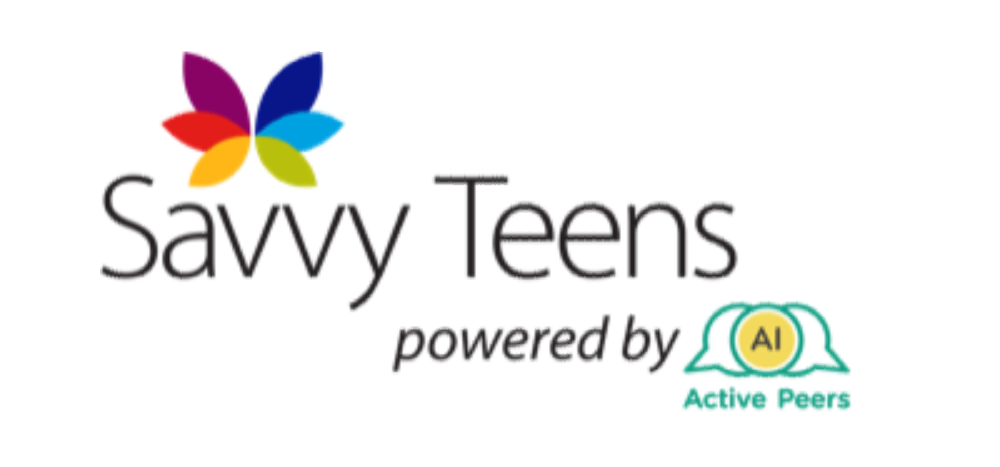How can you use role-play as a peer learning activity?
This is a subtitle for your new post
Peer learning can be generally defined as any situation where individuals are learning from or alongside each other. However, the potential challenges faced with peer learning include the lack of realistic application of concepts, the lack of structure, and the fear of sharing honest and critical feedback to participants. In addition, many supervisors and teachers of peer learning may not know the different kinds of peer learning activities available to them and stick with the simplistic “get-int0-groups-and-work” model.
A particular peer learning activity, role-play when applied correctly, potentially removes all of these problems, although it does have its own share of challenges. Role-play as a result, can be a valuable activity in any field.
Why Roleplay?
Role-play is an activity where individuals embody a character who they are not, or put themselves into a situation they are not currently in.
The Science Education Resource Center at Carleton College states that the benefits of role-playing include: the immediate application of content into real contextual situations, the ability to adopt a persona that allows for one to express themselves in a manner beyond their typical, the memorability of the situations, and the receiving of immediate feedback on performance.
Role-play forces people to apply themselves in situations, putting conceptual ideas and making it more real, similar to how a scientist might test a hypothesis through an experiment. Applying the content being learned or discussed improves an individual’s understanding of the material.
When adopting a character, a person is freed from the shackles of their individual personality. They can act differently, think differently, and speak differently than they normally would. They are able to demonstrate and come up with a creative expression beyond their typical behaviour. That expression allows for an understanding that would otherwise not have been realized.
Inputting themselves into a situation or a character, when an individual later needs to utilize or recall the concepts being learned, the role-playing scenario is far more memorable than if they had simply read about or listened to a lecture. This memorability enhances performance recall and understanding.
Recall one of the challenges of peer learning, the lack of realistic application of concepts. While discussion and problem-solving can be excellent for learning, it is an activity like role-play that induces the creative and more realistic expression.
Freedom of Expression
The United Federation of Teachers, a Union for teachers in New York City, published an article called “Role-playing brings learning to life” where teacher David Sherrin, gives examples of uses for role-playing in the classroom. Students “take on the role of characters from the past or from the literature [and] immerses them [into it]. Students begin to feel an emotional tie to the story. And when students hear, see and act out the story, their comprehension increases.”
The freedom of immersing themselves into situations and characters “cultivates perspective and empathy. Students strive to understand the experiences of others, even if they do not agree with them [and even] create alternative scenarios and see the impact of their choices.” In doing so, Sherrin states that it helps students “make sense of ideas like power, identity and choice and coaxes them to grapple with what it means to be human.”
Role-play also speaks to the importance of fun, joy, and engagement that occurs throughout the activity. “Role-playing allows all types of students to shine. Oftentimes, those who struggle with traditional tasks excel in role-plays. The quiet student who carefully takes notes and then provides advice to the actors can add something to the scene. The rambunctious child who leaps from her seat and can’t resist talking (or calling out) in class can become a star.”
It is the freedom of being able to embody a new character or scenario, the freedom of not being bound by the image one portrays to others, that allows for all students to shine.
The Challenges of Role-Playing
In her book “Role Play in Language Learning” by Carol Livingstone published back in 1983, it is stated that advantages of role-playing include “maximizing student activity, relevance, interest, discipline, and mixing of ability groups.”
However, Livingstone also states the disadvantages are the organization and structure of the activity, as well as time constraints that usually limit that structure. Furthermore, she indicates that the role of the facilitator and the attitudes of all involved are topics that require consideration when looking into using role-play in a group.
Emre Erturk, from the Eastern Institute of Technology in New Zealand, agrees, according to his paper on ResearchGate titled “Role Play as a Teaching Strategy.” He explains that proper preparation must be done by giving the relevant information for the contextual situation and spending time getting people prepared for their roles.
An article titled “ “Want to Facilitate Role Playing in Your Class?” written by Catherine Weiner on ABLConnect, an online database curated by Harvard University for active learning in post-secondary classrooms, agrees that the value of role-playing comes with proper preparation of the activity.
In addition, Carleton College’s Science Education Resource Center states the primary challenge of role-playing is getting all students to participate and be truly engaged. Instructors or facilitators should consider ways of increasing the likelihood of that happening.
Put simply, the benefits of role-play scenarios are maximized only with proper preparation. Spending time to ensure students understand the contextual situation they are being put into, and the characters they will embody is vital to the success of the activity.
However, the same Resource Center also states that if students aren’t willing and open to participating in the activity, then even preparation is useless. It is, therefore, necessary, and important, for instructors and facilitators to consider ways of increasing the likelihood of that happening.
Sustaining Critical Feedback
The International Review of Research in Open and Distance Learning published a paper titled “Exploring the Impact of Role-Playing on Peer Feedback in an Online Case-Based Learning Activity” written by Yu-Hui Ching from Boise State University, USA.
One big finding from the research was how role-playing “alleviated cognitive challenges of peer feedback.” Sometimes people may feel hesitant in giving or hurt in receiving more critical feedback. However, in role-play situations, it allowed for more focused feedback from a specific perspective. This focus allowed them to look deeper into questions and look through the lens of the role that was being portrayed, enhancing critical thinking ability, engagement, and the benefit of feedback without the regular baggage.
Catherine Weiner, in the previously mentioned article on ABLConnect by Harvard, states that post-roleplay, it is often valuable to “have a moment for the student to get feedback on their performance, either from the class as a whole, their partner/group or from the instructor directly.” Allowing students to reflect for themselves, such as asking “what challenges did you face taking on these roles? What was harder or easier than expected” can raise insightful answers potentially related to the material in question.
In fact, Emre Erturk from the Eastern Institute of Technology in New Zealand found in a particular case that a particular group of students that were given individual feedback about their work helped build the students’ confidence, which correlated with their future productivity. Overall, he agrees feedback to learners is valuable, particularly when combining validation with fair and honest feedback.
Where giving critical feedback sometimes has to be done carefully to make sure it is received properly, with role-play in particular this feedback can be given freely. More broadly, discussion of the scenes enacted can be more open and responsive due to the nature of the activity.
Additional Notes
People have varying preferences when it comes to learning. Some prefer to read, others prefer to listen, and others still prefer action. According to a teacher and writer of the article “Why you should use role-playing in the classroom”, Melissa Williams, role-play taps into various styles and allows the demonstration of knowledge in a method different to standard ones such as tests or presentations. Depending on how the activity is structured, participants could be reading, listening, acting, or providing feedback.
Furthermore, role-play is an active learning activity that is more engaging for students compared to a regular lecture or presentation. There is the added benefit of making learning fun and creative as well, which enhances their interest and excitement to learn the material.
A research article titled “Using Peer-Assisted Learning and Role-Playing to Teach Generic Skills to Dental Students: The Health Care Simulation Model” published in the American Dental Education Association did a study on role-playing among several other educational tools beyond traditional learning. “The reported outcome in skills improvement, knowledge acquisition, or overall satisfaction is attributed to the combination of several factors: PAL, role-playing, involvement in an extracurricular activity, and the excitement that goes with all these experiences. It is thus difficult to describe the positive effect reported to any of these factors alone. Further studies would be needed to elucidate the separate effects of each of these factors.”
So while the research towards the particular influence of role-playing is not immediately conclusive, it does suggest that putting together these factors does create a positive effect. Going beyond traditional methods and utilizing active learning, is beneficial.
Role-play is used in grade school, higher education, nursing school, business settings, reading groups. Personally, I’ve done role-play in english classes acting out literature, which helped all of us in the room to immerse ourselves into the book.
However, role-playing doesn’t have to be done in larger groups. Indeed it can be done in small groups, pairs, or even alone. I’ve used role-play in a variety of contexts preparing for presentations or important phone calls or interviews. I role-play as if I am giving a presentation to a class when I’m really alone in my room. Or I’ll role-play with a friend to prepare for an interview. It is important to note that more people being involved means more preparation to ensure everyone understands the context.
In conclusion, role-play as a learning strategy can be very valuable. With proper preparation, in proportion to the number of participants involved, the benefits of role-playing include memorability, creative expression, freedom of giving critical feedback, and a deeper understanding of the situation being imagined.












